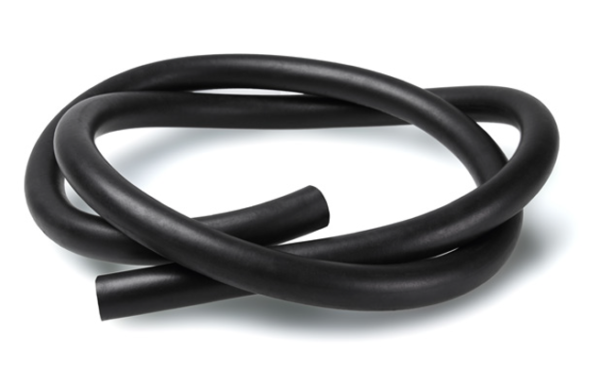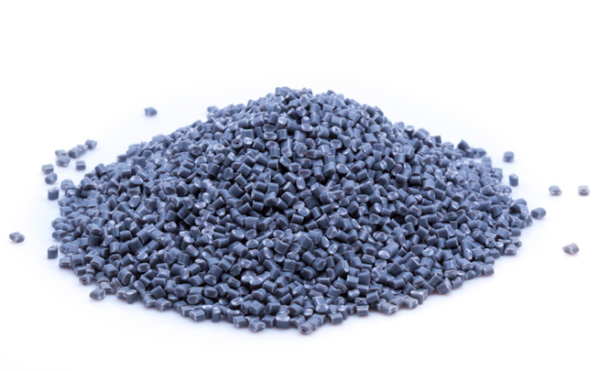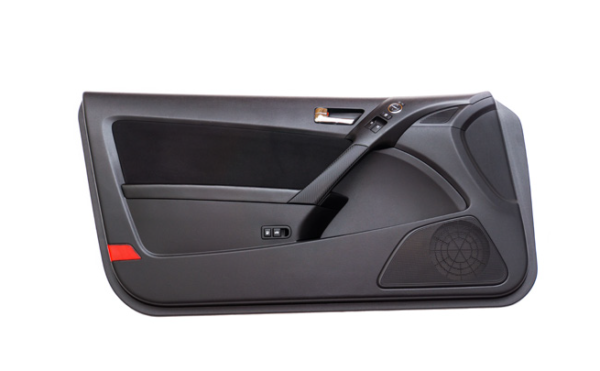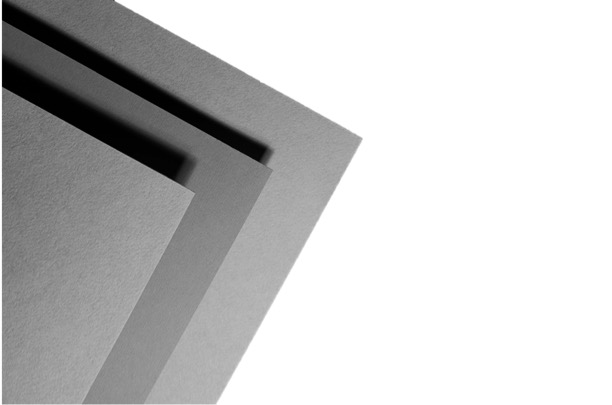The hydraulic laboratory presses by Fontijne Presses are used successfully in many different sectors and applications.
Currently, more than 2.000 our laboratory platen presses are being used daily for quality control purposes and in R&D departments in factories, labs and universities around the world.
Our presses are often used to prepare samples for different kinds of lab tests. This is because many lab testing equipment can only provide reliable results on the condition that the samples are properly pressed first.
Applications we can help you with

Rubber
To examine the quality of rubber for example, a sample is taken from the production batch and pressed into a die.
Next, the sample will be vulcanised (e.g. according to the ASTM D 3182 norm), after which it is ready to be used for elongation tests, or to test density, Mooney viscosity, ash content, bromine and chlorine content.
Polymers
Our laboratory presses are widely used for the preparation of polymer samples, such as PE, PP, PS, ABS and many more.
In order to precisely determine the physical properties of polymers, samples that are pressed under accurately controlled conditions (following international standards) are needed. This way, properties like tensile strength, flexure and impact can be tested. Furthermore, compression moulded polymer samples are also used for colour testing, weathering and XRF analysis.


Composites
Our hydraulic laboratory presses enable ground-breaking and industry leading research into composite materials.
They assist your investigation to develop cost effective manufacturing technology for lightweight composite structures, as used in aerospace (unmanned aircraft structures) and automotive (sports car bodies) industries.
PEM fuel cells/membrane electrode assembly
PEM (proton exchange membrane) fuel cells are made from several layers of different materials. The heart of a PEM fuel cell is the membrane electrode assembly (MEA), which includes the membrane, the catalyst layers, and gas diffusion layers (GDLs).
The membrane electrode assembly provides sites for chemical reactions occurring inside a fuel cell to convert the fuel into usable electrical power. The PEM is sandwiched between two electrodes which have the catalyst embedded in them. The electrodes are electrically insulated from each other by the PEM. These two electrodes make up the anode and cathode respectively. The electrodes are heat pressed onto the PEM. Commonly used materials for these electrodes are carbon cloth or carbon fiber papers. This is when the Fontijne Presses laboratory presses come into play in this story.

Other applications
Apart from quality control and R&D support in the rubber, polymer and composite industries, these presses are also widely used to prepare samples in wood, plywood, textiles, ceramics, laminating (credit cards, ID cards), silicones, thermoplastic resins, etc.
Furthermore, Fontijne Presses is a familiar name in universities where the presses are used for educational and research purposes.
Contact us and our specialist will advise you with the best solution for your application.
Application Notes
Enhancing thermoplastic composite testing with the Fontijne Presses LabManual 300
As a leading manufacturer of fiber materials and thermoplastic prepregs, Bambooder faced significant challenges in producing consistent, high-quality composite plates for mechanical testing. The need to provide customers with accurate data on material performance and precise processing parameters was constrained by limited in-house capabilities.
When introducing a new thermoplastic composite (TPC) resin, Bambooder often relied on complex external testing workflows that were time-consuming and less reliable. This approach delayed the development process and complicated efforts to provide customers with timely, actionable insights.
How a laboratory platen press professionalizes your quality system
Consistent batch to batch quality is the absolute key to the successful use of recycled thermoplastics. Through targeted raw material selection, technological know-how and the most elaborate process and quality monitoring, it is possible to achieve batch consistency at the level of virgin material.
Process and quality monitoring is the area where laboratory platen presses come into play as compression-molding is a defined method to produce test specimens and sheets for machining or stamping test specimens that are homogeneous and isotropic.
Curing of biobased resins
One of the industries working on circularity by using more biobased resources is the building industry. Several initiatives have shown that building in a biobased way is possible, for example by making use of cross laminated timber (CLT) as constructive material instead of concrete or steel.
The aim of the experiment presented in this application note is to show the advantage of using the Fontijne Presses LabManual 50 press to achieve proper curing, supporting the development of a biobased resin and adhesive.
Brake systems development
In the landscape of automotive engineering, even the smallest components can make a significant impact. Among these, brake systems stand out as crucial elements for ensuring safety and performance. At Lapinus, a key player in the industry, attention to detail is the norm, especially when it comes to advancing brake technology.
In this article, we explain the role of the Fontijne Presses LabEcon 600 in shaping the future of brake systems at Lapinus.
Bonding of laminated glass
Laminated glass is a type of safety glass that holds together when shattered and that is commonly used in applications that require strong binding, toughness, and optical clarity for example in the automotive and architectural fields. The bonding process takes place under high heat and pressure conditions. By optimizing heat and parameters, a program for pressing samples meeting the customer requirements can be created.
Fontijne Presses laboratory presses are used for Research & Development purposes but also for Quality Assurance and/or Control during the production of the resins as well as the interlayer films.
Recycling of textiles
Unlike other waste streams, such as household electrical appliances, textile waste, and more specifically discarded clothing, is not subject to a set of regulations that producers must adhere to regarding the collection and disposal of discarded products.
Recycling textile is a challenging process as textiles may get contaminated with residual water resulting in the absorption of moisture and dirt. Also, textile may contain buttons, zippers, etc. or be produced from mixed fabrics, for example elastane.
The Fontijne Presses LabEcon press is used to make samples from recycled fabrics that are thereafter analyzed in various ways: by microscopy, mechanical tests, etc. The types of the fabrics may very from case to case.
Customer Testimonials
AFC Energy
AFC Energy, a leading clean energy technology company committed to replacing fossil fuel generation with hydrogen fuel cells, has recently expanded its research capabilities by acquiring a Fontijne Presses LabEcon 600 laboratory press.
In their pursuit of sustainable energy solutions, AFC Energy recognised the need for a laboratory press to enhance their research and development capabilities. The LabEcon 600, part of the acclaimed LabEcon series, perfectly met their requirements for sample preparation and quality control.
AGC Chemicals Europe
As a world-leading manufacturer of fluoropolymers and fluoroelastomers, the European subsidiary, AGC Chemicals Europe, has been providing solutions specifically aimed to create a sustainable future.
Fontijne Presses LabEcon laboratory press enables AGC Chemicals Europe to solve their challenges by being able to apply uniform pressure and temperature across the CCM surface with ease. By ensuring that the press operates consistently with the same specifications as the previous run, concerns about process issues downstream are alleviated, enabling a faster response to any issues that may arise.
University of Bath
The University of Bath’s Chemistry Department is renowned for its cutting-edge research in the field of polymer science and sustainable materials. In pursuit of advancing their research capabilities, the department recently acquired a LabTop 150 press from Fontijne Presses.
Whether the focus is on quality control testing or pioneering R&D projects, the hydraulic laboratory press LabTop 150 is a trusted partner in achieving research milestones.
The Institute for Sustainability looks forward to harnessing the capabilities of the LabTop 150 to advance their research initiatives, particularly in the fields of material science and polymer research.
Lantor Composites
When it comes to lightweight a monolithic shell part, or to produce products fast and with optimal surface quality Lantor has expertise and textile solutions in FRP products. A custom press mould from Lanulfi and the laboratory press LabEcon from Fontijne Presses are the right tools to achieve that.
Arceon Novel Elements
Offering a wide range of customized and comprehensive solutions, enhancements, and innovations on existing as well as future challenges, Arceon Novel Elements is currently active on the aerospace, defence, and refractory global markets. The team at Arceon develops low cost, lightweight and high temperature (>1200°C) stable ceramic composite materials and products. The
Fontijne Presses LabEcon 600 ProView laboratory press allows the team at Arceon to achieve uniform pressure over the mould of the product, which ensures a high-quality component.
AMS Institute
AMS Institute is an internationally leading institute where talent is educated and engineers, designers, and both natural and social scientists jointly develop and valorize integrated metropolitan solutions.
With its focus on research and innovation, AMS Institute purchased the Fontijne Presses LabManual 50 to be used in its makerspace for experimentation and prototyping of biobased composite materials from municipal waste-streams.
Salomon
Salomon has grown into a world leader in outdoor sports equipment since the company was founded in 1947. The brand is best known for its high-quality materials for mountain sports such as downhill and cross-country skiing, snowboarding, hiking and trail running.
The Fontijne Presses LabEcon 600 is used for test programmes on new concepts with thermoplastic reinforcements and polypropylene fibers, such as for ski helmets.
